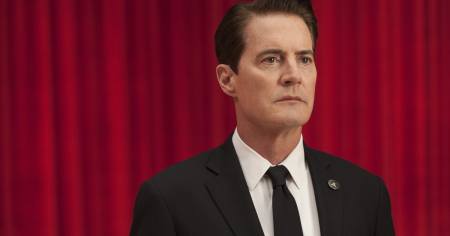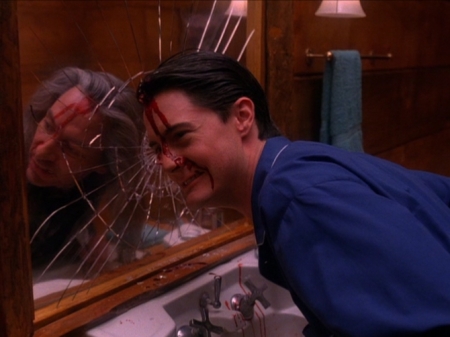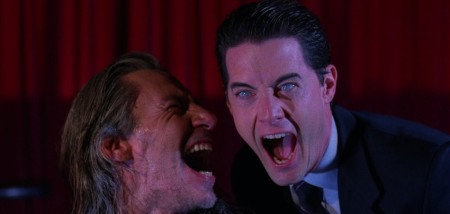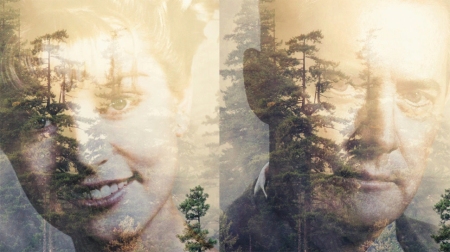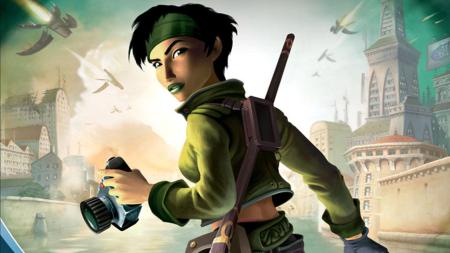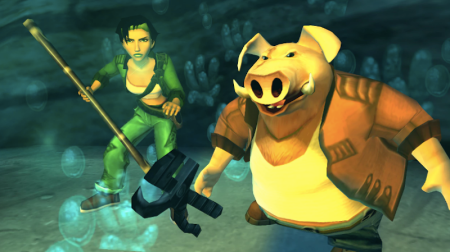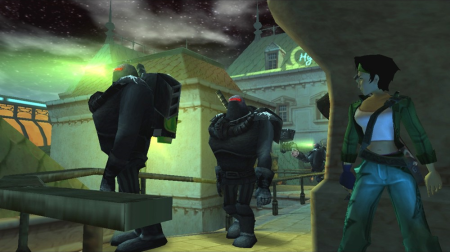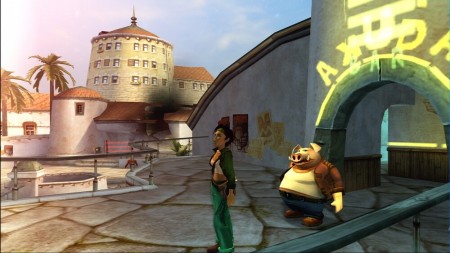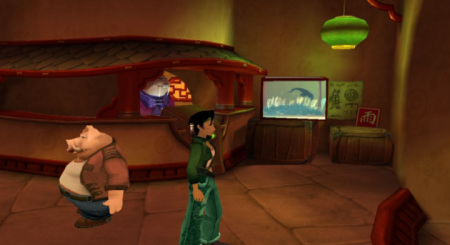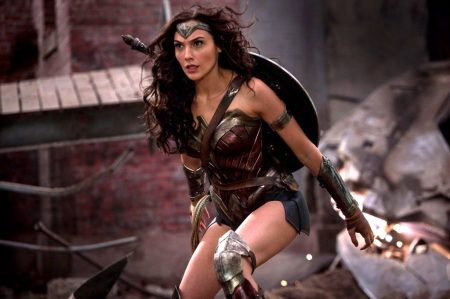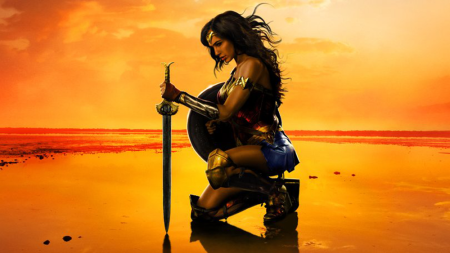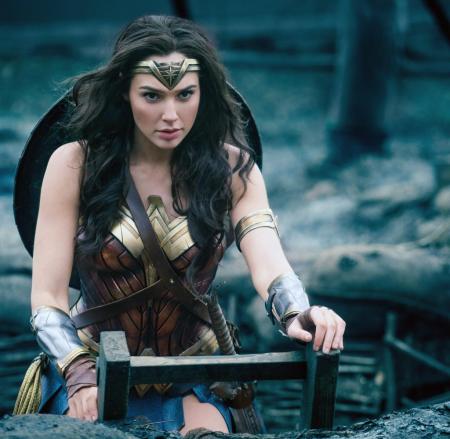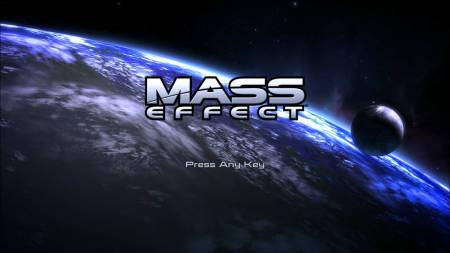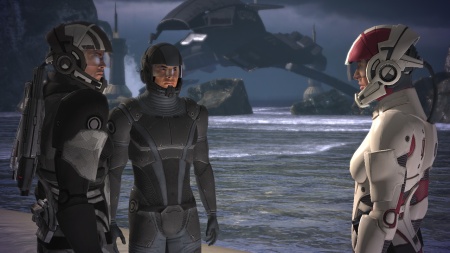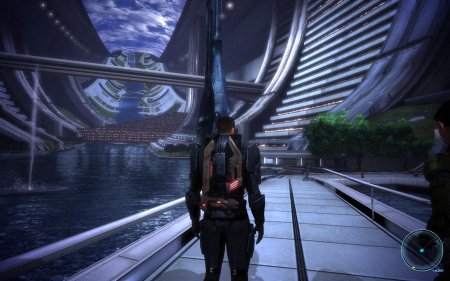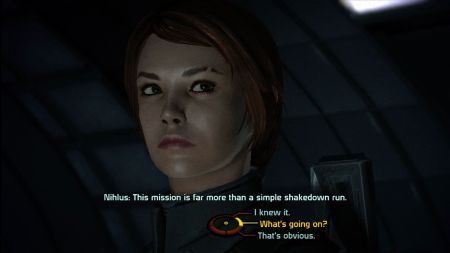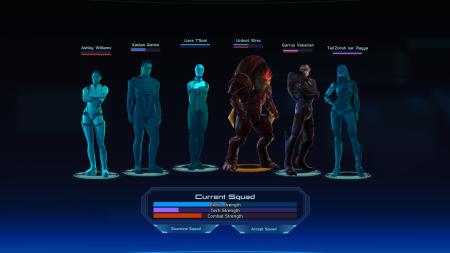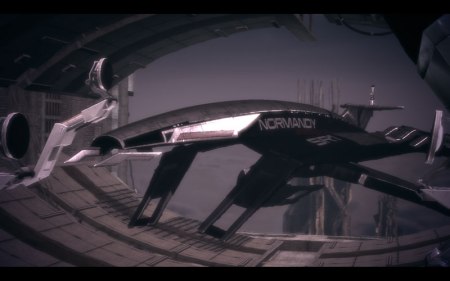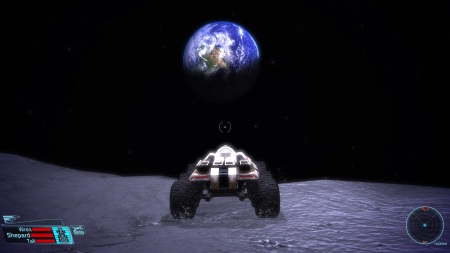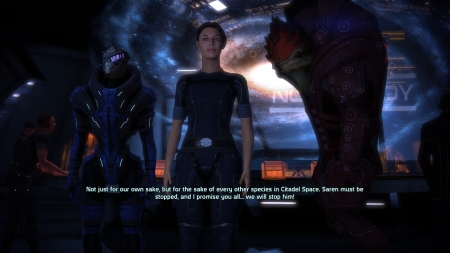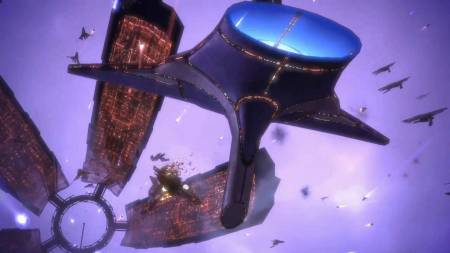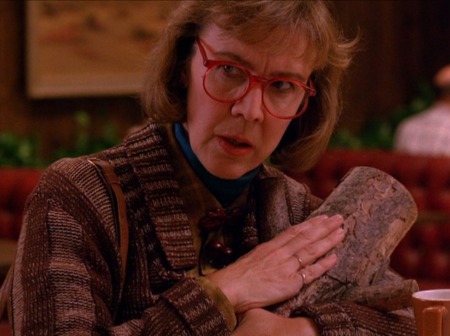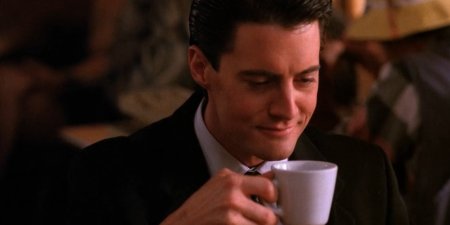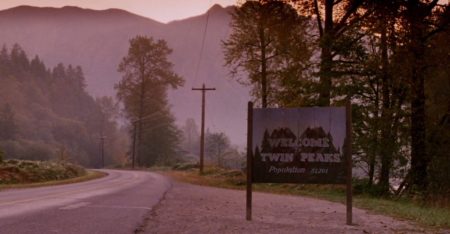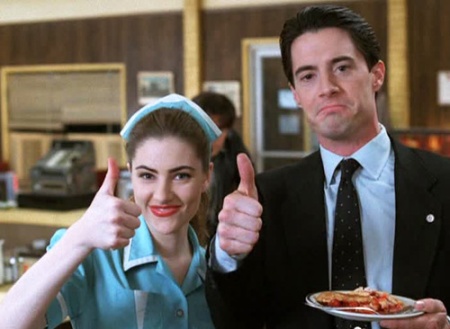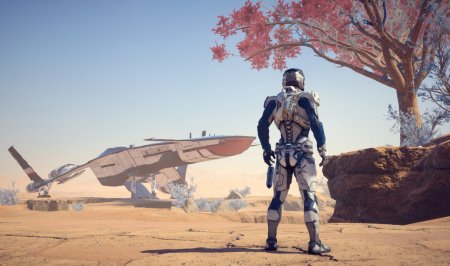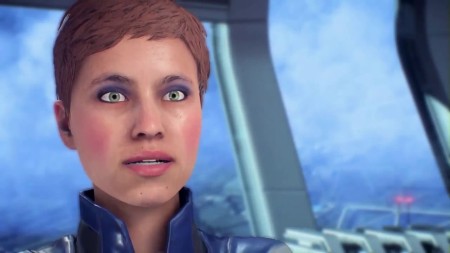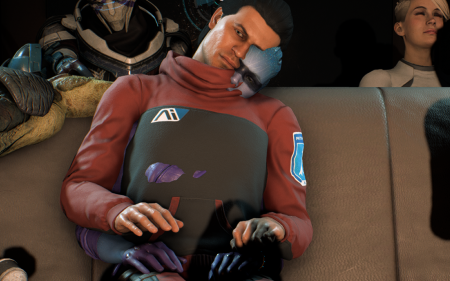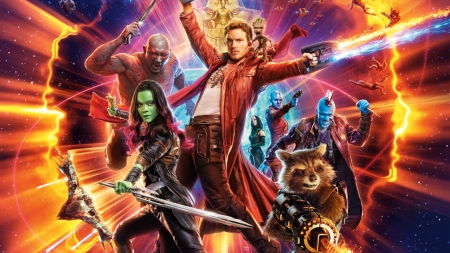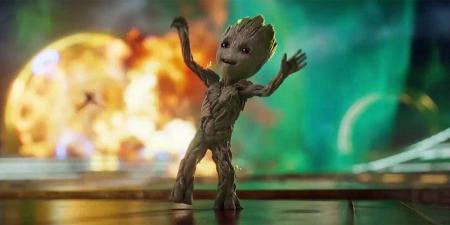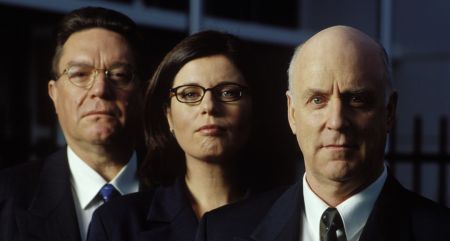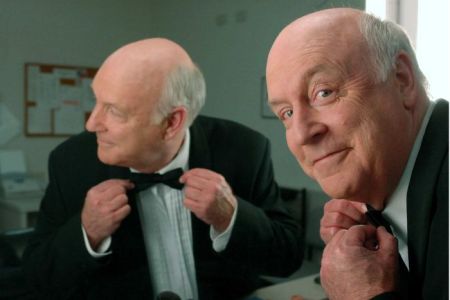
I was hunting for a UFO when I finally snapped.
Scampering across the wilderness, watching the silhouette of a tree on the horizon coalesce from out of the draw distance haze, I knew, before I had even confirmed the sight, what I was going to find. But I pushed my avatar character forward anyway, watching him hunch in his predatory sprint, heading toward an inevitable disappointment.
I was playing out the last of what had now been several ‘Frontiersman missions’ in Assassin’s Creed 3. These were optional side quests wherein the game’s protagonist, Connor, after overhearing some piece of whispered legend, sets off into the American wilderness searching for answers. And given that each of these local mysteries includes tales of spooky ghosts, otherworldly murders, or impossible beasts, these vignettes play out like fleeting colonial X-Files investigations, unravelling the fact from the fiction in America’s early urban mythology.
Unlike Mulder and Scully’s adventures, however, here Connor repeatedly finds each story to be a bogus exaggeration. A ‘haunted’ lighthouse proves to be just a tattered blanket on some sticks; tales of the fearful Kraken dissolve with the discovery of a rickedy diving suit; the fearful visage of the sasquatch turns out to be some old hermit squatting in a cave. The closest the paranormal seems to dance with these campfire tales is hunting for the Headless Horseman, where a grim figure actually is spotted riding off into the wilderness. But given that this is almost certainly just some homicidal maniac with a carved pumpkin on his head, it’s hardly the proverbial smoking gun to prove that Jacob Marley, ALF, and Elvis are sharing a rented condo in the Bermuda Triangle.
And here I was, at the end of this run of anticlimaxes, responding to the sighting of a UFO in the area. Running across that clearing I already knew what I was going to find. Knew in my head and my heart exactly what it was going to be. And yep, there it was. Not a space ship or a flying saucer, but a single umbrella fluttering in a tree.
An umbrella in a tree.
Of course, it’s meant as a bit of light comedy. Can you believe those crazy stories?! it seems to say. The people of this time are apparently so ignorant that a wind-swept parasol inspires tales of life beyond the stars! But the joke is also at your expense as the player. Look at you, you big silly, it says. Chasing all over the countryside after a bunch of wild fantasies!
…Which would be very droll, except: isn’t this the game where the storyline – the entire main storyline – concerns a civil war between factions of an alien forerunner race who have prophesised the end of the world? A tale in which dead extraterrestrials masquerade as gods in order to shape the DNA and psyche of every human being that has ever lived? The series principally concerned with two clandestine cabals of zealots locked in an endless ideological conflict – expansive armies (that have gone unnoticed by the general populace) that are directly involved in every single major moment in the history of the world? Didn’t the whole plot of the past several games explain that every religion, philosophy, and social structure in human history is inextricably tied to some weird Dan Brown fever dream of the Freemasons/Illuminati/Skull and Bones/Mouseketeers – a secret organisation that built a machine (part alien!) that can help you re-live the memories of your ancestors through inherited-genomes-pseudo-science-expositional-techno-babble?
That game?!
…But yeah: Bigfoot? That’s just nuts.
And at that moment, scampering up the tree to let the game laugh at my willingness to jump through its hoops, something snapped. I realised, all at once, that I had lost any investment I had in the series – that even though I might well continue playing the Assassin’s Creed games in future (and I did), a fundamental bond between audience and text had nonetheless been ruptured, and would likely never return.
That, of course, was just my personal breaking point, but if the response to the past few installments of the game are indicative of anything, I am clearly not the only one starting to lose interest. Perhaps it was a product of the saturating ubiquity of the franchise. In just a few months after Assassin’s Creed: Unity launched, several other Assassin’s branded games had already been announced or released: mobile apps, 2D stealth platformers, reissues of older games. Perhaps the company burned off a lot of good when Unity emerged as one of the most unpolished, bug-riddled, glitchy games in history – its reputation further sullied when it was revealed that a press embargo from Ubisoft had actively prevented reviewers from mentioning any of these flaws until after the game was already in stores and purchased by fans. It’s follow up, Syndicate, by many accounts, presented a more polished game with more welcome innovation, but the response was still depressed enough to warrant taking a year off from the annual release cycle, to let the franchise rest for a spell, and to pour more attention into a soft-reboot for the series, the just-released Assassin’s Creed: Origins.
Whatever the reason, it seems true to say that even some of the series’ most ardent supporters are now more likely to express cautious optimism than shouts of ‘Take my money!’, and I suspect that it might be Assassin’s Creed 3 the carries the burden for this shift – the game in which the series finally revealed its whole teased meta-narrative to be nothing more than an umbrella fluttering in a tree.
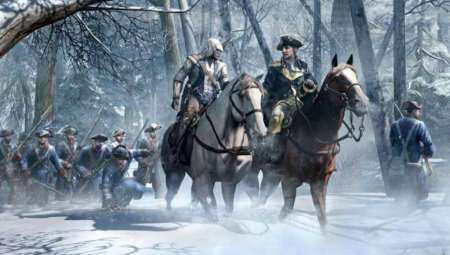
Land Of The Free ..ish
In many ways Assassin’s Creed 3 tried to be as epic, grand and sprawling as the country – colonial America – that it sought to reflect. But it was a mess. Part techno-babble sci-fi, part historical drama, part thumping action spectacular, part maudlin family soap opera, part power fantasy, part mash note to hopeless emo nihilism, part meta-fictional commentary on the conventions of videogames, part unabashed exploiter of every hammy videogame trope, the game was awash with fundamental contradictions.
The narrative spanned two continents and several major cities. It jumped between two distinct time periods. It concerned itself with three major protagonists, all competing for the player’s attention. There were even at least three epilogues to the game. Literally: three epilogues. (It’s no wonder the credits of the game run for about the length of an average Peter Jackson film.) At some moments the narrative is filled with pretentious bloat – long meandering speechifying and posturing – but at others it is inscrutably lean – whole years of narrative development are skipped, characters inexplicably disappear or send you off on quests that have little justification.
To its credit, the game sought to explore some of the real world injustices and hypocrisies that littered the overly-romanticised age of America’s founding fathers, thereby questioning the wilful mythologising of history. Here George Washington is depicted at times as a ruthless mercenary, even willing to order the slaughter of whole tribes of Native Americans, something true to historical record. Ben Franklin’s infamously lecherous letter to a friend extolling the benefits of choosing an older mistress is quoted directly. But at the same time, the game indulges a cartoonishly oversimplified revisionist conspiracy history, and frequently sidelines some inconvenient truths. There are very few African American slaves depicted in the game, with slavery itself largely hand-waved away early in the narrative by Samuel Adams; and complex social conflicts always boil down to the game’s fantastical Templar versus Assassin’s conceit.
And it is in this, the game’s central thematic exploration of the conflict between the Templars and the Assassins – between an oppressive, clandestine society devoted to social engineering human history, and an (ironically highly organised) group of murderous anarchists striving to thwart their plans for some amorphous definition of freedom – that the issues with the game become most pronounced.
Up until Assassin’s Creed 3 the franchise had built upon each previous iteration, continuously cramming more content, more side objectives, more mini-games, into its endlessly expanding coffers. As the series wore on, however, it became progressively overburdened with extraneous mechanics, with AC3 arguably its most overstuffed. (Which, if one wants to get snarky for a second, seems a little ironic considering how much of its narrative is spent chastising its imperialist characters for serving an empire that wants to arrogantly overstretch itself…)
The game boasts a multitude of weapons; a series of stat upgrades; stealth, melee and projectile combat; vehicle travel; an assassin squadron to recruit, order about, and micromanage; hunting; item crafting (with recipes); lock-picking; a selection of playable historical board games; a small homestead and trading sim; cryptic puzzles; fort liberations; horse riding; an entire naval control and combat system (because for almost no reason you’re made a ship captain too); infantry orders; canon targeting; for one entire expository sequence you become a spirit eagle flying through the air avoiding obstacles because… I guess that’s something else to do. On and on and on…
And yet, despite this glut of options, the game repeatedly strips away this wealth of choice in order to funnel the player into passive, scripted sequences. Learning to lead a battalion of men and offer them cover fire with a canon is used precisely once – seconds after that mechanic is explained – and never seen again. Many of the assassinations are impossible unless approached from specific angles expressly dictated by the game designers. Cinematic sequences force the player down narrow, non-interactive pathways. Most peculiarly, several fight scenes with major antagonists turn into straight battles of attrition in which the player character must be manoeuvred around to some piece of interactive scenery where he is required to utilise pre-rendered contextual attacks.
This restriction is perhaps most clearly displayed in the game’s much maligned introductory chapters. Rather than allowing the player the freedom to explore their world, the game directs them, over the course of several hours, in how they are to move and behave, drip feeding them new skills and dictating how to use them. Indeed, you are so confined in this tutorial period that you spend a good portion of it trapped on the deck of a boat, surrounded by open ocean that offers only inglorious death.
The reason that this opening chapter is so constrained is revealed in a plot twist misdirect: the character you are playing, Haytham Kenway, is actually a devoted Templar – not the freedom-spruiking Assassin you presumed him to be. Thus, this kind of rigid, claustrophobic play-style is entirely representative of his world-view. When the game’s true historical protagonist is revealed, Kenway’s illegitimate Native American son Ratonhnhaké:ton, or Connor, the stage seems to be set for a direct interrogation of the irresolvable yin and yang spiral at the heart of the game series. Having literalised the conflict between Templar and Assassin as father and son, by asking you to play as and empathise with both men, the game appears ready to weigh free will and totalitarian order against one another on a global and personal scale.
But then it goes on to repeatedly undercut this intriguing conceit.
What happens instead, over the course of a dozen more hours, is a curiously undercooked build up to a rote fight. Connor eventually meets his father and arbitrarily agrees to start running errands for him, with any notion of free will disregarded as neither the player, nor the supposedly independent Connor himself, is permitted to do anything but follow Haytham’s morally questionable instructions.* Soon Connor is predictably double crossed, and the father that you were compelled to play, whose goals you were at first invited to empathise with, is reduced to merely a stiff, narcissistic zealot, his motivations for diligently serving the Templar order and spreading imperial dominance across the globe through violent oppression no more nuanced than any other moustache twirling villain.
The climactic battle between Connor and his father – the supposed resolution of the conflict between these two characters and the culmination of the game’s oversimplified metaphorical exploration of their world views – becomes merely another endorsement of constraint. For all of his innumerable fighting styles and weaponry and companions, Connor (and the player that gives him agency) can only win this scripted fight if he performs precisely as the game dictates, by participating in the game’s obsession with counters and interactive objects – effectively a series of dressed up quick-time events.
So at the climax of Connor’s narrative, although incessantly paying lip service to the notion of ‘freedom’, and supposedly using him as a symbol of defiance, Assassin’s Creed 3 instead persists in stripping any such freedoms away, forcing the player down a singular, preordained path from which they cannot stray.
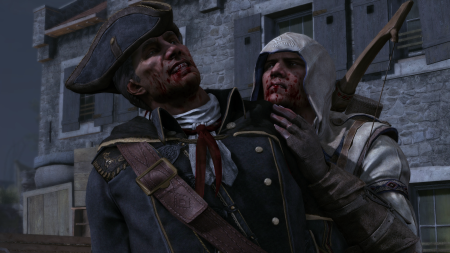
The God Is The Machine
The disregard for free will that plays out between Connor and Haytham proves to be merely a microcosm of the journey that culminates in Assassin’s Creed 3, and that has played out in the series’ meta-game over several years and in multiple instalments.
The linking narrative that drove the numbered instalments of the franchise up to that point concerned Desmond Miles in the present day, a man living out the memories of his ancestors in a device called the Animus – essentially a virtual reality suite. When the series began Desmond was essentially a bit of immersive narrative point of view, a way to contextualise the historical game play and give the whole experience more immediacy for the player. And this premise offered the Assassin’s Creed games one of the most exciting opportunities for exploring the relationship between creator, audience and text in the history of fiction.
In a manner that no other medium could attempt, the Assassin’s videogames invited their player to be an inextricable participant in the thematic exploration of control and freedom at the heart of the narrative. You, as player, controlled Desmond, who in turn controls an historical figure (which could change between instalments), with each layer of the fictive onion becoming ever more loaded with irony. The historical figure (Altair; Ezio; Connor; Edward, etc) believes that he has autonomy, but he is ultimately being shepherded by Desmond, who is himself being piloted by the player – them self ultimately subservient to the design of the game, the Animus itself into which you peer.
You’re essentially playing as the ultimate turducken of antiestablishment freedom fighters, always within the regimented, pre-rendered playpen that has been walled off for you, and that will only allow you to progress if you perform as it dictates. Kill too many civilians? Well you’re out of phase and have to restart. Tried to jump out of the arbitrary boundaries of the landscape? Well you get reloaded back in place. Keep dying and getting thrown back to a checkpoint? Well that’s because according to history you didn’t die there, so you get to restart and do it properly. A civilian NPC is glitching out in the background? Well this is a computer simulation, after all.
In Assassin’s Creed 2, this immersion culminated in a thrilling moment of expository dialogue in which Ezio meets Minerva, an ancient alien who had disguised herself as a Roman god, only to have her turn away from him and talk directly to the audience, rupturing the fourth-wall and dragging the player them self into the fiction. In its direct sequel, Brotherhood, there was enormous horror evoked when the Desmond character was possessed by an otherworldly force and forced to kill an ally. No matter what buttons you as player pressed to avoid this fate, the character was inexorably propelled toward the deed.**
As the series went on, Desmond’s present day journey hinted at some grand role that he was apparently going to play. As an individual with free will he was going to be pivotal in saving the world at the end of 2012.
But whereas the Assassin’s Creed series had once been so good at incorporating these videogame conventions into their fiction, using these limitations as colour for the tale and exploring the strange frisson of pre-programmed content and potential player agency, in AC3 they were forced to make a definitive statement about just how much input the player could ever have on the story, and their answer was dishearteningly grim.
In AC3, as the textual and metatextual worlds collided with the release of the game in late 2012, the audience’s role, at all three levels of the games narrative – Connor, Desmond and Player – is finally revealed to be entirely perfunctory. Connor’s entire life story is reduced to a means to finding a key for a locked door. You wrestle your way through forty hours of side missions and lock picking games and upgrade trees and ship sailing, sit through a Forrest Gump-style greatest hits package in which Connor is inexplicably pivotal to every major moment of American history, all just to watch a guy throw a necklace into a hole (a necklace that looks conspicuously like a computer disc, meta-fans). Then, after waiting for that cut-scene to end, you shift back to Desmond’s time period, to passively watch yet another scene play out that entirely undermines any illusion of agency you may have still had…
Back in the ‘real world’, Desmond, digs up the magic key, opens a mystical door, and in a lengthy exposition dump with two ancient aliens, Minerva and Juno, he is told that humanity is weak, and civilisation is unsalvageable. The aliens opine that all religions and social structures are doomed to corruption because human beings are inexorably self-destructive and need to be controlled, and in a particularly patronising dialogue Minerva dismisses humanity as ‘children’ who have ‘squabbled over [her people’s] refuse’, incapable of saving themselves or even understanding their place in the universe.
But rather than defy this categorisation of humanity as weak-willed followers, Desmond seemingly goes on to prove it true. He is told to kill himself in order to free the despotic alien Juno – an act that has been orchestrated by Juno herself – and bizarrely, Desmond immediately agrees, once again with no choice or input from the player.
The whole series therefore reveals itself to be a build up to a willing, wilfully ignorant, suicide. Desmond, surrendering all autonomy, is struck lifeless in a wash of light, with he, the narrative, and the player, all suddenly rendered moot, reduced, like everyone else in the series, to pawns moved at the behest of forces beyond their comprehension.
Juno is released into the world, temporarily preventing some sun-spot related world catastrophe, but free once again to enslave humanity. She laughs, seemingly at both the dead Desmond and the player, and swaggers off stage to scheme her way through the inevitable threatened sequels. Even the epilogue of the Connor story reveals (in a cut scene afterthought) that despite spending the game desperately striving to save his people’s land, they simply move away without Connor anyway.
In a game series that claimed to be celebrating the audacity of liberating oneself from tyranny, Assassin’s Creed chose to use the concluding game of its initial trilogy, a game set in the messy chrysalis of the American revolution, to state that ‘freedom’ is merely the illusion of choice in a state of willing constraint. The ending of the Desmond Miles story, both in narrative and gameplay, proving to be merely a joke at the expense of the player. Look at you, you big silly, it says. Thinking you were an autonomous individual with an impact on anything of substance…
Assassin’s Creed 3 becomes an enormous, beautifully rendered sandbox game designed just to kick sand in your face. In its final moments it shows that the only way in which to ‘win’ the Assassin’s series was to not play at all. Having led its audience on a multi-episode chase – promising revelations, promising autonomy, promising UFOs, it revealed itself to be nothing more than an umbrella fluttering in a tree.
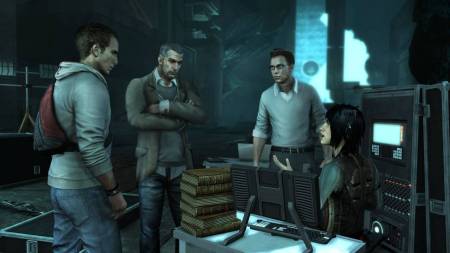
Flying Your Freak Flag
Ironically, it was admitting the ultimate futility of its serialised narrative that would go on to make Assassin’s Creed 4: Black Flag such an enjoyable game. As a sarcastic, self-serving pirate, the game’s protagonist Edward Kenway was completely distinct in its now woefully convoluted mythology, a refreshing blast of impertinence in a franchise bloated with faux gravitas. The plot he was reluctantly drawn into was largely irrelevant and wilfully nonsensical (he puts on an assassin’s uniform he just found, and so, like something out of Greatest American Hero, he gains magical assassin-vision and can immediately start leaping off cliffs and performing stealth kills), but Kenway’s cynicism toward it seemed to mirror the player’s own:
‘Sure, sure, the spyglass of the ancients that can DNA stamp whatever… Just give me my ship so I can sail the seas and goof around.’
The game’s Caribbean open world was immense and beautifully realised; you met some fun characters; could largely explore and distract yourself as you pleased; and the story, such as it was, made little sense (none at all if played with no prior knowledge of the series) and seemingly had no impact on anything.
Even the present-day framing narrative was marked by a wearied, self-mocking tone. Desmond, the fixed point in the overarching tale was gone – literally a dissected corpse lying on a slab somewhere that you could only really learn about if you trawled through endless multimedia Easter eggs. Characters from the previous series appeared only in bit cameos. Now, you were just some faceless quality tester in a cubicle, actually working for the bad guys: a videogame company overtly modelled on Ubisoft itself that was intent on global domination by milking their golden goose franchise to hell.
Black Flag succeeded as a rowdy epilogue because it embraced its pointlessness, but this snarky, self-immolating tone was clearly not one that Ubisoft wanted to foster. The next year’s release, Unity, was therefore straight back to pumping out revenge tales and the dread machinations of global cabals intent on enslaving the blah blah blah… Continuing to advertise itself with promises of ‘hope’ and tides of ‘revolution’. But whether or not fans of the franchise are going to follow the series any further down a path that has already been proven fruitless remains to be seen.
Curiously, the series’ future success might well depend upon what players thought of one of the few features that Assassin’s Creed 3 offered in spite of its pessimistic thematic bait and switch.
Connor’s home base throughout the game, the Davenport homestead, was actually a little self-contained community that gradually grew and changed over the course of the game. Connor would meet people on his journeys and invite them to live on his land. Over several years, with his (sometimes slightly creepy) assistance, these people would build new houses and buildings, fall in love, get married, start families.
And eventually, the members of this little makeshift community decide to make their own flag – a banner that they believe will better represent them than whatever design is being cooked up by the leaders of the newly minted United States. What they make is a collage, a symbol of community stitched together from scraps. It’s a lovely image – emblematic of the resourcefulness and defiance of this little civil enclave amidst the largely uncaring, hypocritical governmental forces amassing beyond their borders. It is also a symbol of the narrative: a makeshift contrivance cobbled together in defiance of the crushing weight of history’s – and the franchise’s – grim inevitability.
What you make of Assassin’s Creed 3 – arguably what you make of the entire series going forward –seems to depend on how willing you are to ignore the game’s illusion of independence and instead focus on the little things. If, rather than hoping for a logical narrative through line, or expecting any payoff to the thematic promises of free will overcoming subjugation, if you can concentrate instead upon the character beats and vignettes of humanity that play out amidst its oppressive design, there may be something still worth playing.
A UFO that turns out to be an umbrella? Yeah, screw that. But a flag made of scraps that just wants to celebrate the mess that is life?
That’s worth chasing.
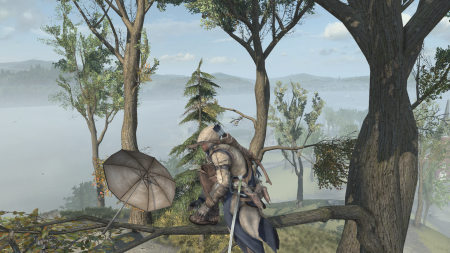
* Even in side-missions you are inexplicably forced to do Haytham’s work for him. Connor is still running around chasing Ben Franklin’s notes long into the game – even though he wasn’t the guy originally given that task.
** This moment gets ret-conned in an entirely unsatisfying way in Assassin’s Creed 3 when Desmond claims that he could have stopped himself from killing Lucy. Apparently she was a Templar agent and he knew that, even though you didn’t and there was no evidence of such a ‘twist’ at all prior to her death.
[Note: an earlier version of this article was first published on PopMatters.]
